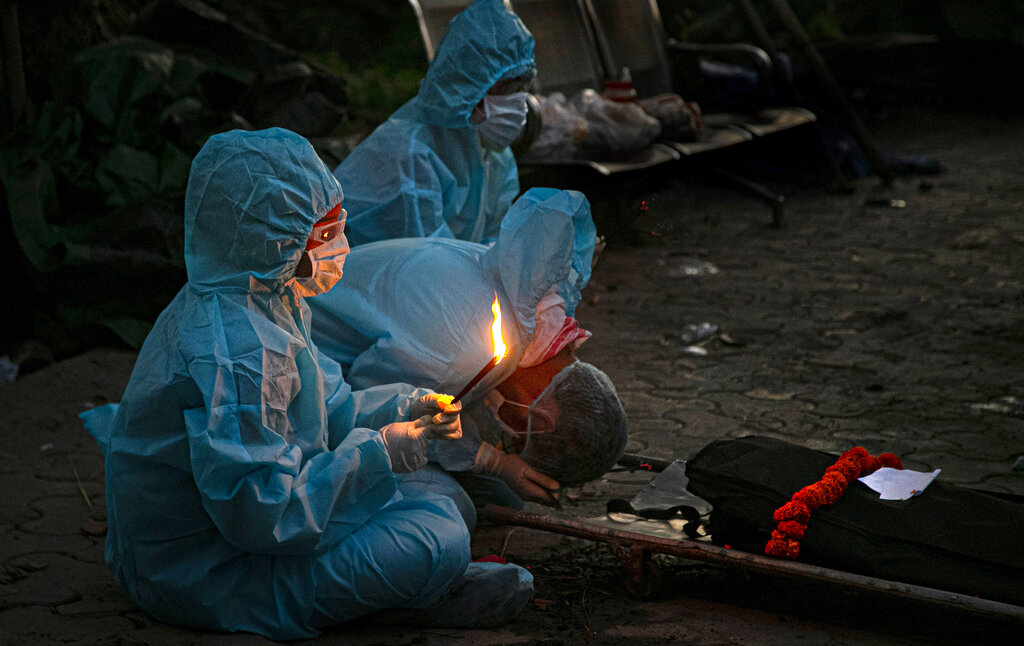
Relatives in personal protective equipment perform rituals during the cremation of a person who died of COVID-19 in Gauhati, India, Monday, Sept. 28, 2020. India’s confirmed coronavirus tally has reached 6 million cases, keeping the country second to the United States in number of reported cases since the pandemic began. (AP Photo/Anupam Nath)
More than 60 million people in India — 10 times the official figure — could have contracted the novel coronavirus, the country’s lead pandemic agency said Tuesday, citing a nationwide study measuring antibodies.
According to official data India, home to 1.3 billion people, is the world’s second most infected nation, with more than 6.1 million cases, just behind the United States.
But the real figure could be much higher, according to the latest serological survey — a study testing blood for certain antibodies to estimate the proportion of a population that has fought off the virus.
“The main conclusions from this sero-survey are that one in 15 individuals aged more than 10 have been exposed to SARS-CoV-2 by August,” Indian Council of Medical Research (ICMR) director-general Balram Bhargava said at a health ministry press conference.
Bhargava said evidence of virus exposure was more prevalent among people tested in urban slums (15.6 percent) and non-slum urban areas (8.2 percent), than in rural areas, where 4.4 percent of those surveyed had antibodies.
The blood tests were collected from just over 29,000 people in 21 states or territories between mid-August and mid-September.
The new figures are a sharp jump from the first sero-survey results, which the ICMR said showed that around 0.73 percent of adults in India — about six million people — were infected by May.
Other antibody studies conducted in the capital New Delhi and financial hub Mumbai have suggested more infections than the official numbers say.
Scientists warn, however, that antibody tests should be treated with caution because they also pick up exposure to other coronaviruses, not just the one that causes Covid-19, the disease which has killed more than 1 million people worldwide since it emerged late last year.
India — which has one of the world’s most poorly funded healthcare systems — has gradually lifted a strict lockdown imposed in late March even as infections steadily climb, to revive its battered economy.